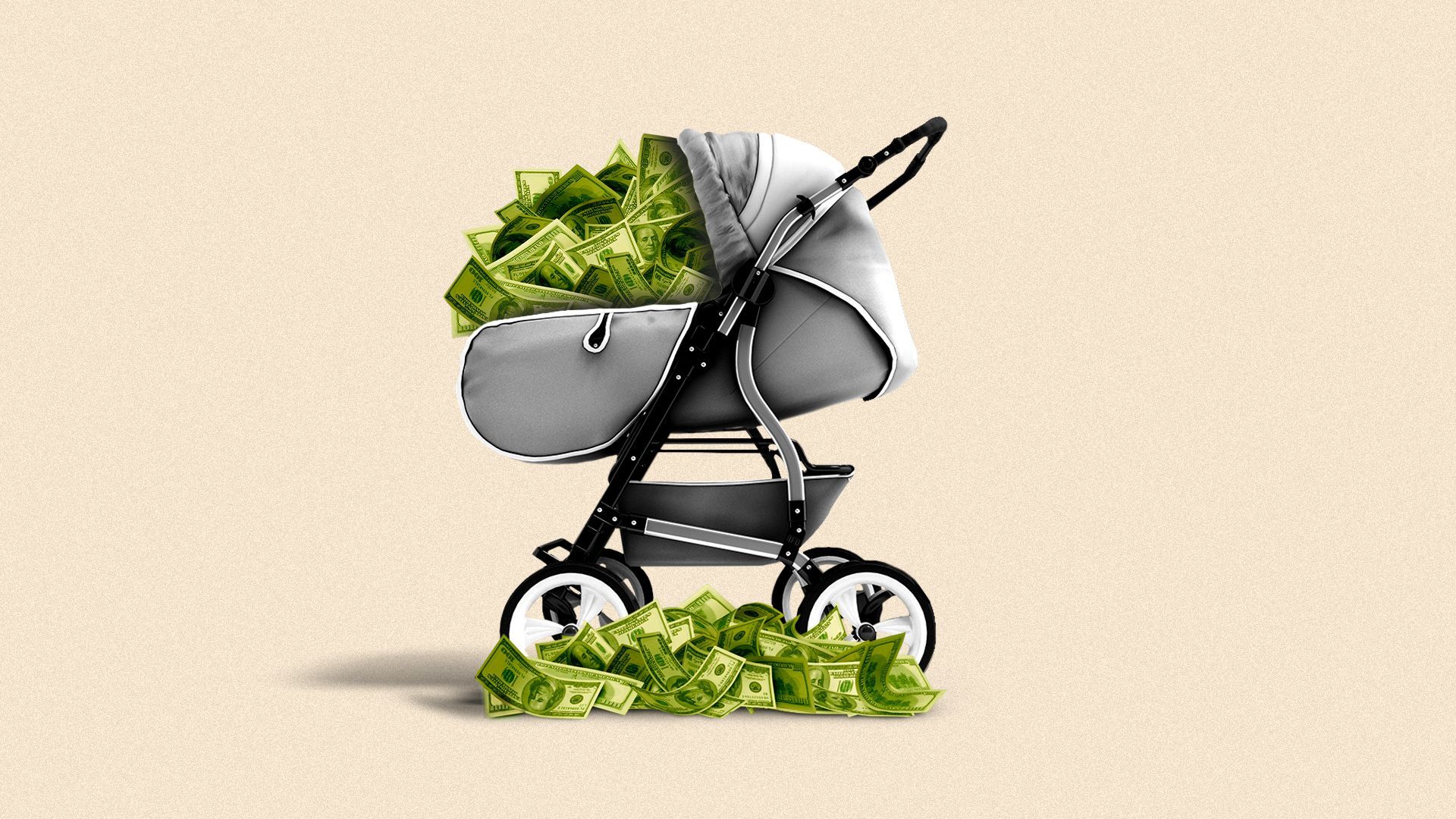|
||
| Axios Pro Rata | ||
| By Dan Primack · Jul 07, 2025 | ||
| Top of the Morning | ||

|
||
|
Illustration: Aïda Amer/Axios |
||
|
America's babies are becoming investors, each to receive $1,000 seed accounts via the reconciliation bill signed last week by President Trump. Why it matters: This could expand financial flexibility and literacy for future generations, given the power of compound interest, albeit on the dime of current taxpayers. Catch up quick: We first discussed this idea 18 months ago, as the brainchild of venture capitalist Brad Gerstner (with inspiration from past concepts, like Cory Booker's "baby bonds").
How it works: The bill creates a new class of investment account in the tax code.
Zoom in: There also is a chance that these accounts will unlock new forms of philanthropy.
Look ahead: It's one thing to write the rules and quite another to implement them.
The bottom line: The program will need to be renewed, reformed, or renounced after 2028. And, depending on who's in charge, renamed. |
||
|
|
||
| The BFD | ||

|
||
|
Illustration: Sarah Grillo/Axios |
||
|
TPG completed its $7.6 billion purchase of the 70% stake it didn't already hold in DirecTV from AT&T (NYSE: T). Why it's the BFD: AT&T is officially out of the media game, focused instead on connectivity. Catch up quick: TPG agreed to the deal last fall, concurrent to an announcement that DirecTV would buy Dish Network to form the country's largest pay-TV provider.
The bottom line: AT&T in 2015 spent $49 billion to buy DirecTV and three years later spent $85 billion for Time Warner. It no longer owns any of it.
|
||
|
|
||
| Venture Capital Deals | ||
|
• CarOnSale, a German B2B marketplace for used cars, raised €70m in Series C funding. Northzone led, joined by HV Capital, Insight Partners, Stripes, and Creandum. axios.link/4eVn7qN • AirGarage, an SF-based provider of parking facilities management software, raised $23m in Series B funding, per Axios Pro. Headline led, joined by Founders Fund and Fourthline Capital Management. axios.link/3GtOBXB • GetWhy, a market research startup that derives insights from video interviews, raised $20m in Series A extension funding led by insider PeakSpan Capital. axios.link/4lCid3N ⚡ Solarock, a French maker of solar panels, raised €7m from Pale Blue Dot, Noa, Ring Capital, and Kima Ventures. axios.link/46ohbnK • Parter, a New York-based hardware manufacturing data startup, raised $5.5 million in seed funding, per Axios Pro. StageOne Ventures led, joined by Zenda Capital and Mercer Ventures. axios.link/4ktdNLz ⚡ Crosstown, a Swiss startup that helps existing gas turbines run on renewables, raised $3m in seed funding from 2100Ventures, Climate Insiders, Unruly Capital and SDAC, CiRi, Voyagers and the Swiss Federal Office of Energy. axios.link/45TKpe7 |
||
|
|
||
|
A MESSAGE FROM AXIOS |
||
| Your guide to navigating the ad industry | ||

|
||
|
Coming soon: Axios' exclusive members-only Ad Economics Report. Get expert insights from Sara Fischer and Kerry Flynn on the biggest shifts across platforms, companies, and media — plus the trends shaping what's next. A must-read for media pros. |

